Google Analytics For WHMCS
Contents |
About Google Analytics For WHMCS
| Google Analytics For WHMCS will ena............. |
- Admin Area Features:
| ✔ Create/Suspend/Unsuspend/Terminate Account |
- General Info:
| ✔ Requires Google Cloud Partner Program / Reseller Account |
| ✔ Authentication And API Calls Utilize OAuth 2.0 |
| ✔ Multi-Language Support |
| ✔ Supports PHP 8.1 Back To PHP 7.4 |
| ✔ Supports WHMCS Themes "Six" And "Twenty-One" |
| ✔ Supports WHMCS V8.10 Back To WHMCS V8.6 |
| ✔ Requires ionCube Loader V12 Or Later |
| ✔ Easy Module Upgrade To Open Source Version |
Installation and Authentication
| This tutorial will show you how to successfully install and authenticate Google Analytics For WHMCS. We will guide you step by step through the whole installation and authentication process. |
| 1. Log in to our client area and download the module. |
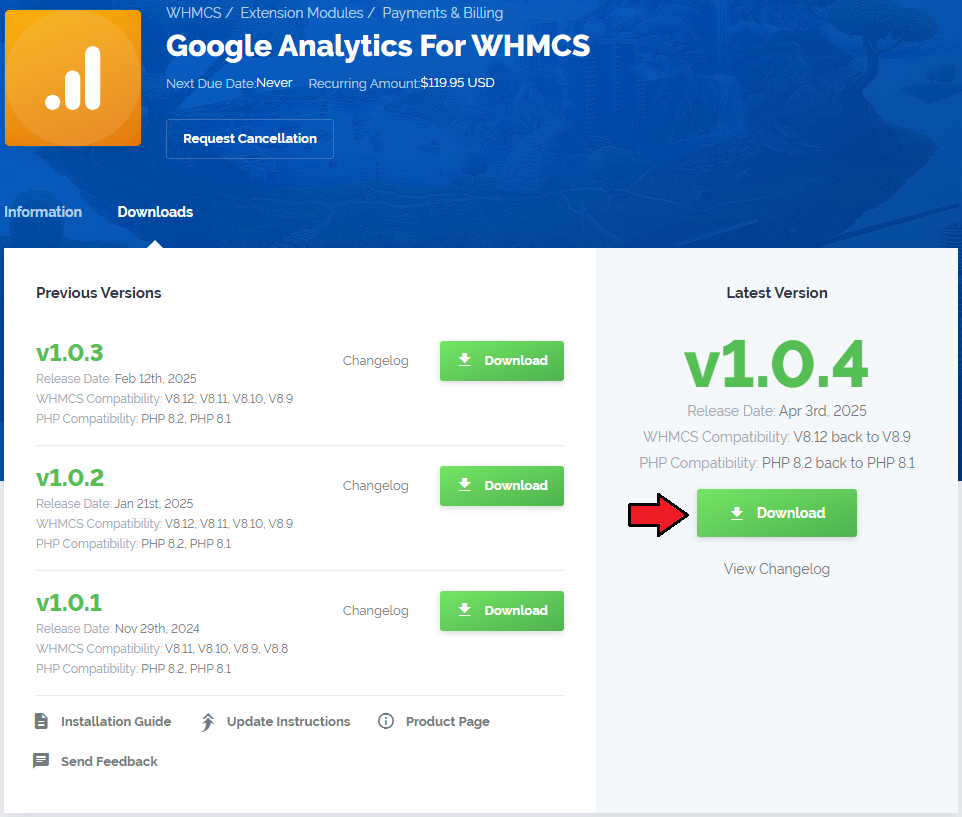
|
| 2. In the downloaded file you might find one or two packages that support different PHP versions. In the most recent versions of the module, you will find only one package that supports PHP 7.2 and later. |
| 3. Extract the package and upload its content into the main WHMCS directory. The content of the package to upload should look like this. |
| 4. When you install Google Analytics For WHMCS for the first time, you have to rename the 'license_RENAME.php' file. The file is located in 'modules/addons/googleanalytics/license_RENAME.php'. Rename it from 'license_RENAME.php' to 'license.php'. |
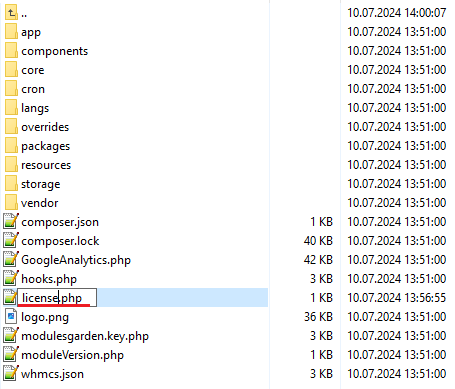
|
| 5. In order to configure your license key you have to edit the previously renamed 'license.php' file. Enter your license key between the quotation marks as presented on the following screen. You can find your license key in our client area → 'My Products'. |

|
API Configuration
| 6. Now you have to authenticate the module through setting up the API Access. Create API Access in Google API Console. You can do it here → https://console.developers.google.com/apis/dashboard |
| 7. After you have logged in, create a new project. |
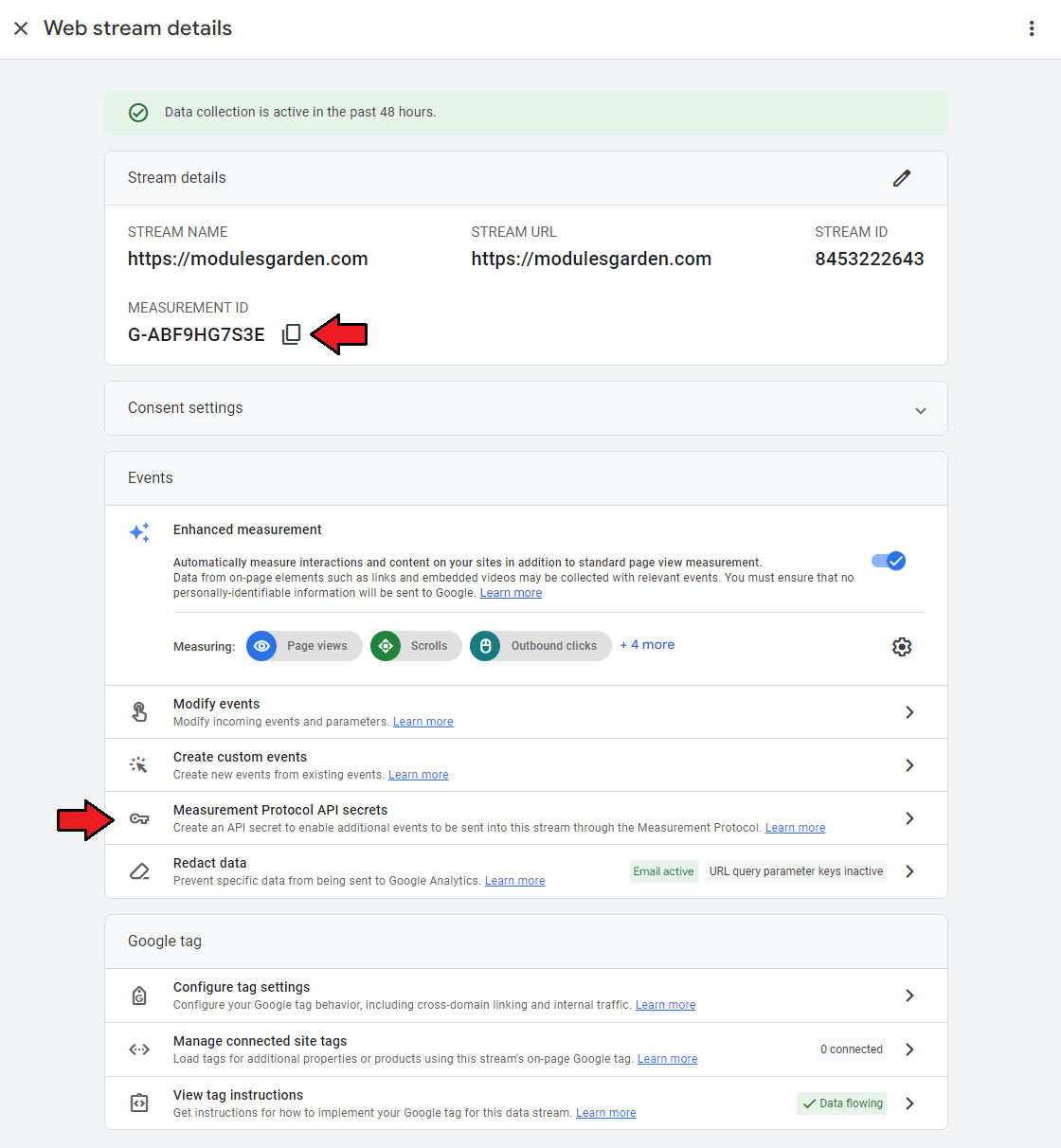
|
| 8. To proceed, go to 'Google APIs' under the 'Overview' tab. Find 'Google Apps Reseller API' among the applications. |
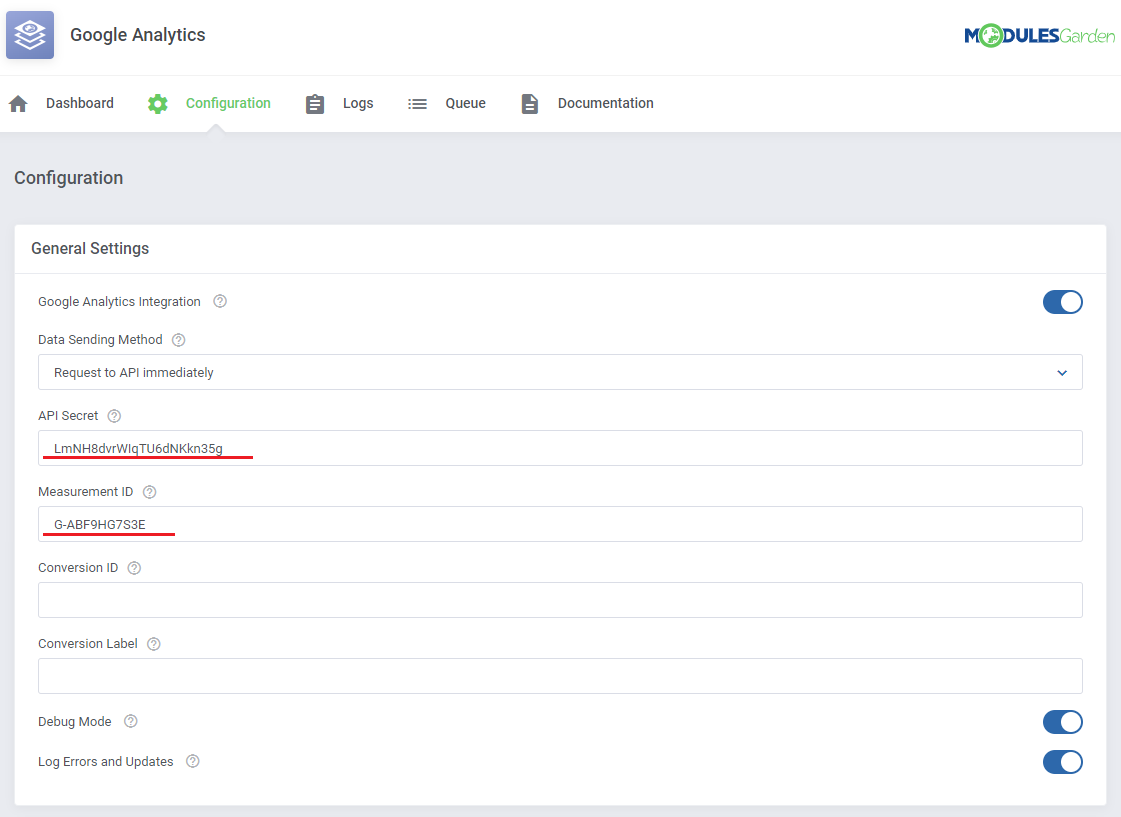
|
| 9. Now, you have to enable 'Google Apps Reseller API' as shown on the following screen. |
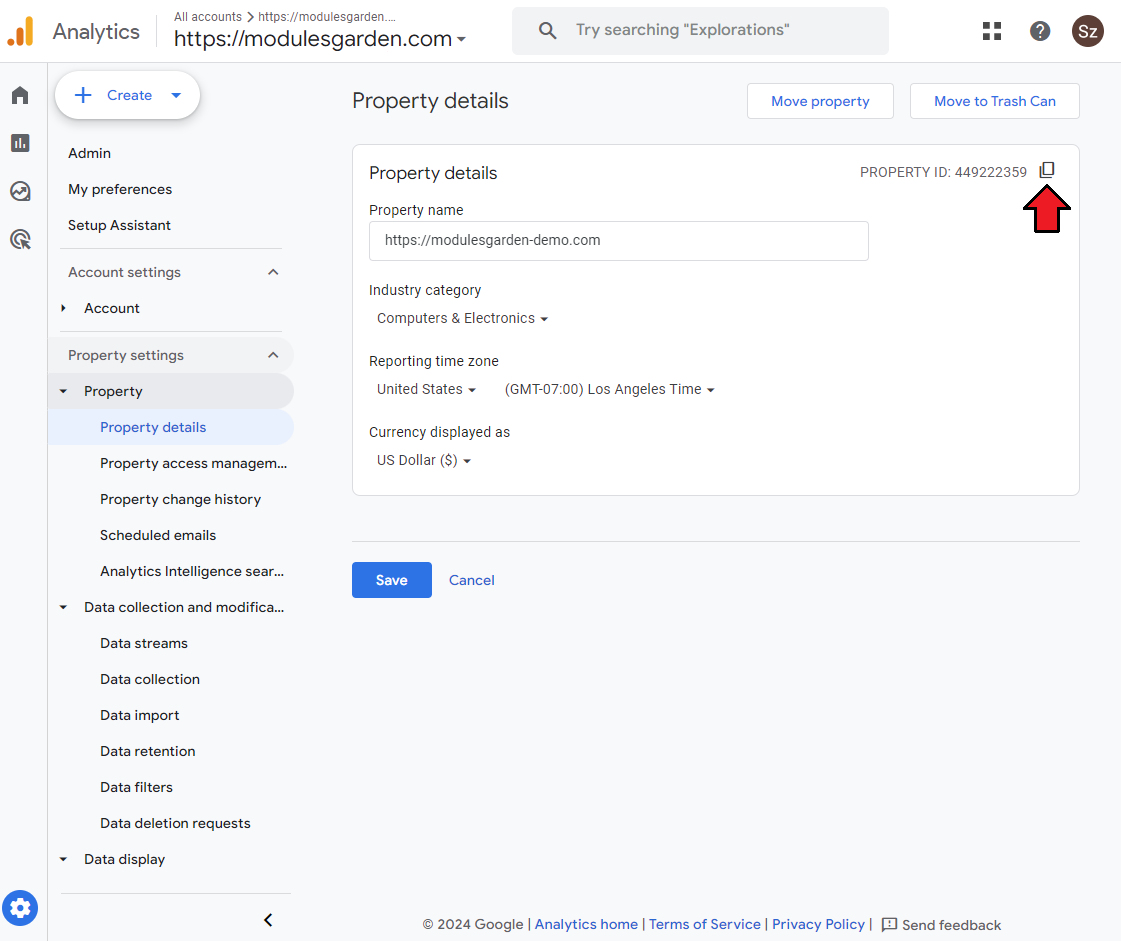
|
| 10. Next, search for the 'Admin SDK' the same way you did it in step 9. |

|
| 11. Enable 'Admin SDK' API. |
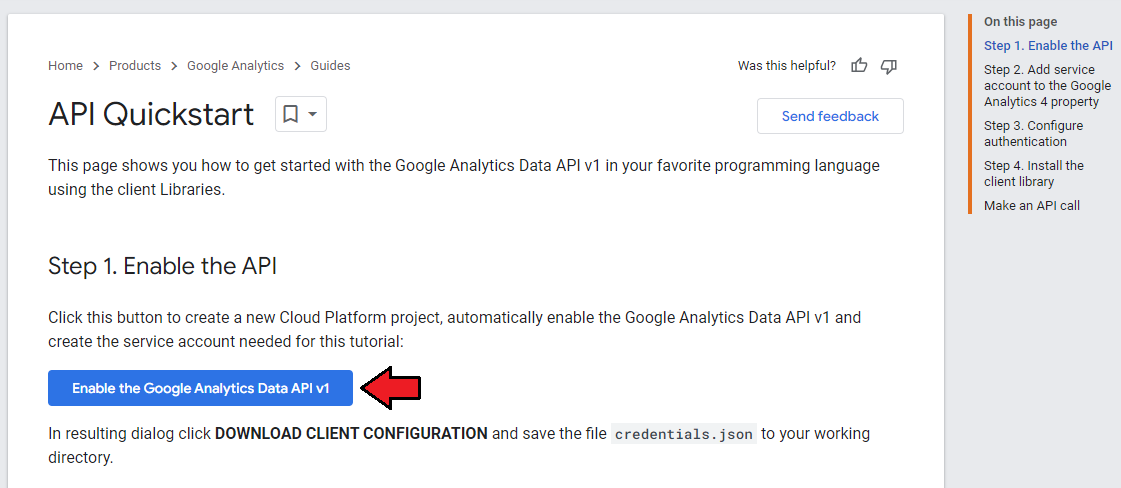
|
| 12. Finally, open the 'Explore and enable API' section, the API & Services page should open. Go to 'OAuth consent screen' under the 'Credentials' section. Afterward, enter the mail address and application name that will be visible during your requests.
Save changes through pressing the 'Save' button. |
| File:GAN 6.png |
| 13. Then, switch to the 'Credentials' tab and add new credentials . |
| File:GAN 9.png |
| 14. After you have done that, tick 'Web application'. Next, enter your website URL into the 'Authorized JavaScript origins' field and correct path to 'oauth_callback.php' into the 'Authorized redirect URI' field. |
| File:GAN 10.png |
| 15. Well done! Now that you have filled in all the necessary details, you can proceed to authenticate Google Apps. |
| File:GAN 11.png |
Product Configuration
| 16. In order to create and configure a product, go to 'Setup' → 'Products/Services' → 'Products/Services'. Click on 'Create a New Group'. |
| File:GAN 12.png |
| 17. Enter your product group name and press 'Save Changes'. |
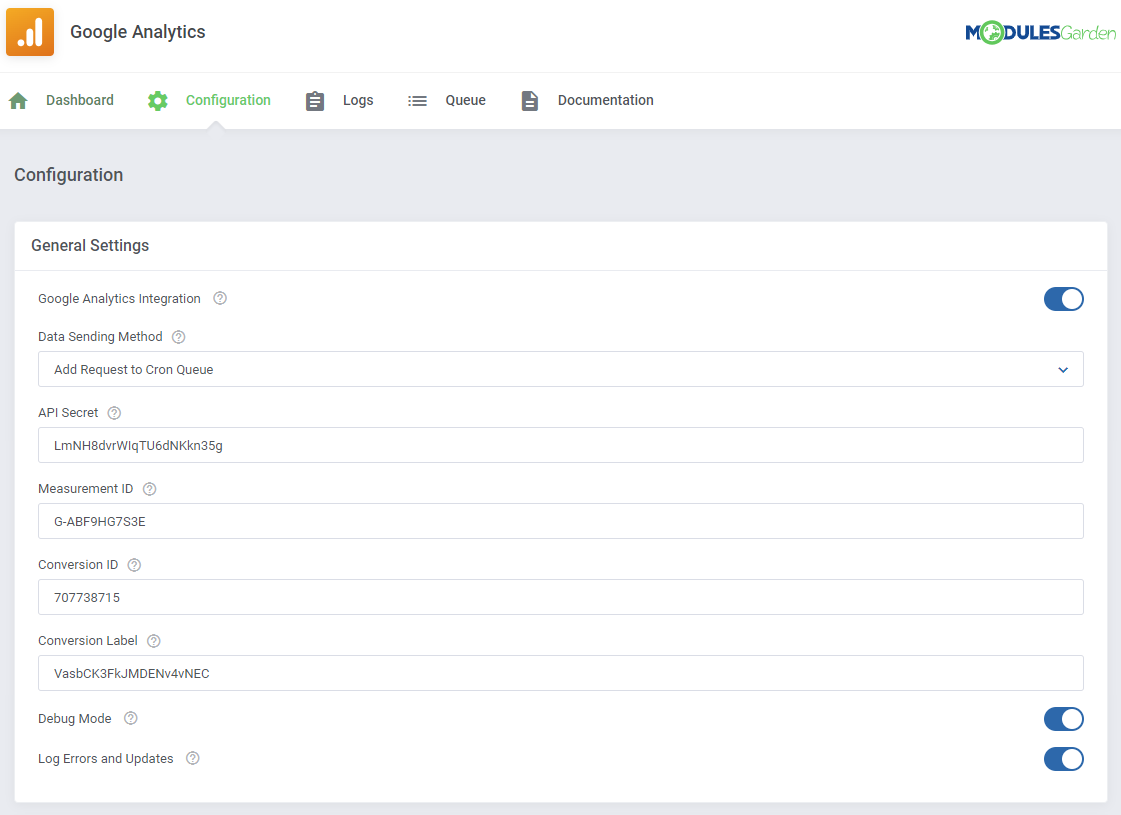
|
| 18. Now, create a new product for your GoogleApps. To do so, first click on 'Create a New Product'. |
| File:GAM 14.png |
| 19. Choose the desired product type and product group from the dropdown menus and enter a new name of your products. Press 'Continue'. |
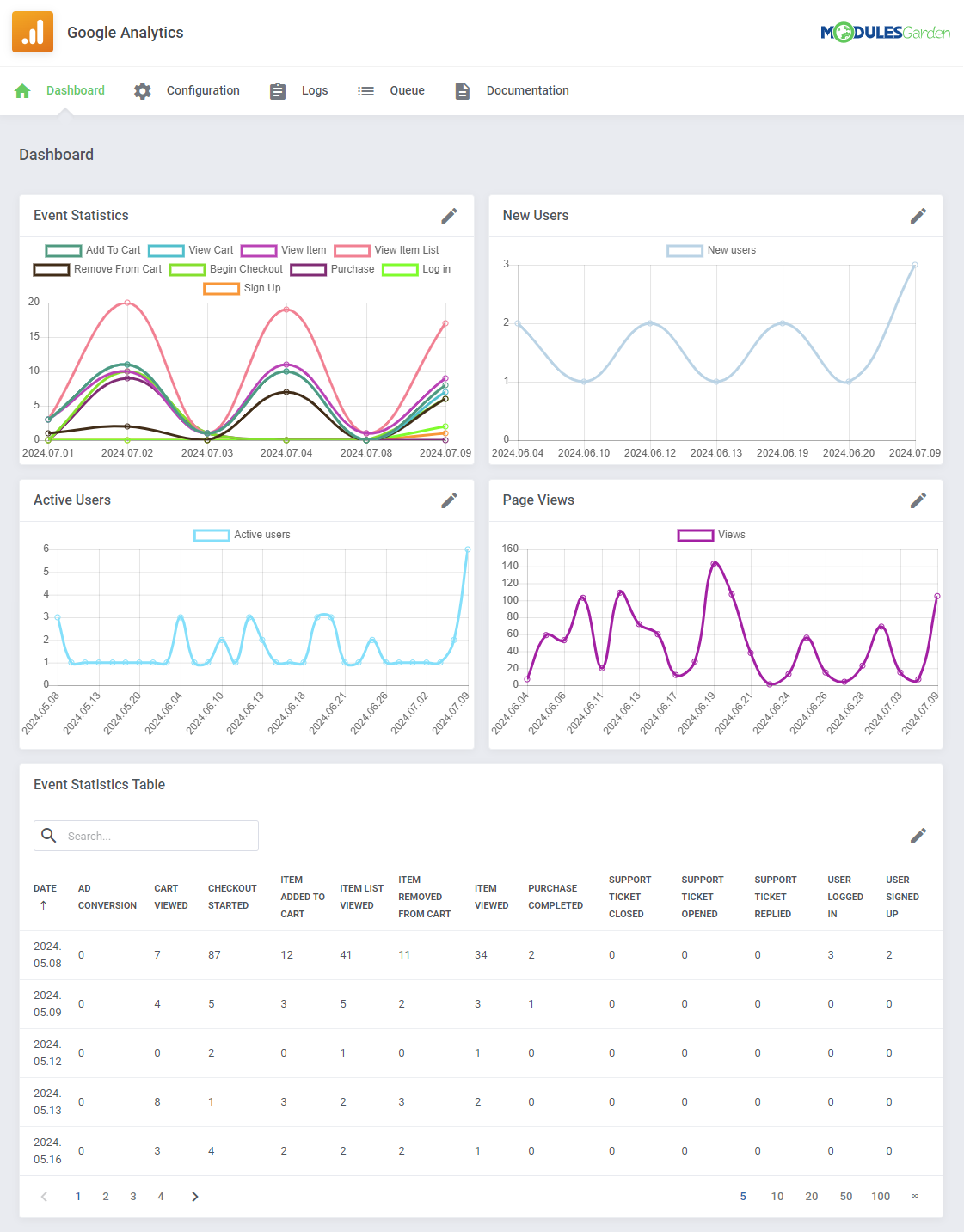
|
| 20. Go to 'Module Settings' of your product and choose 'G Suite' from the 'Module Name' dropdown menu. After choosing the module, make sure to click on the 'Save Changes' button. |
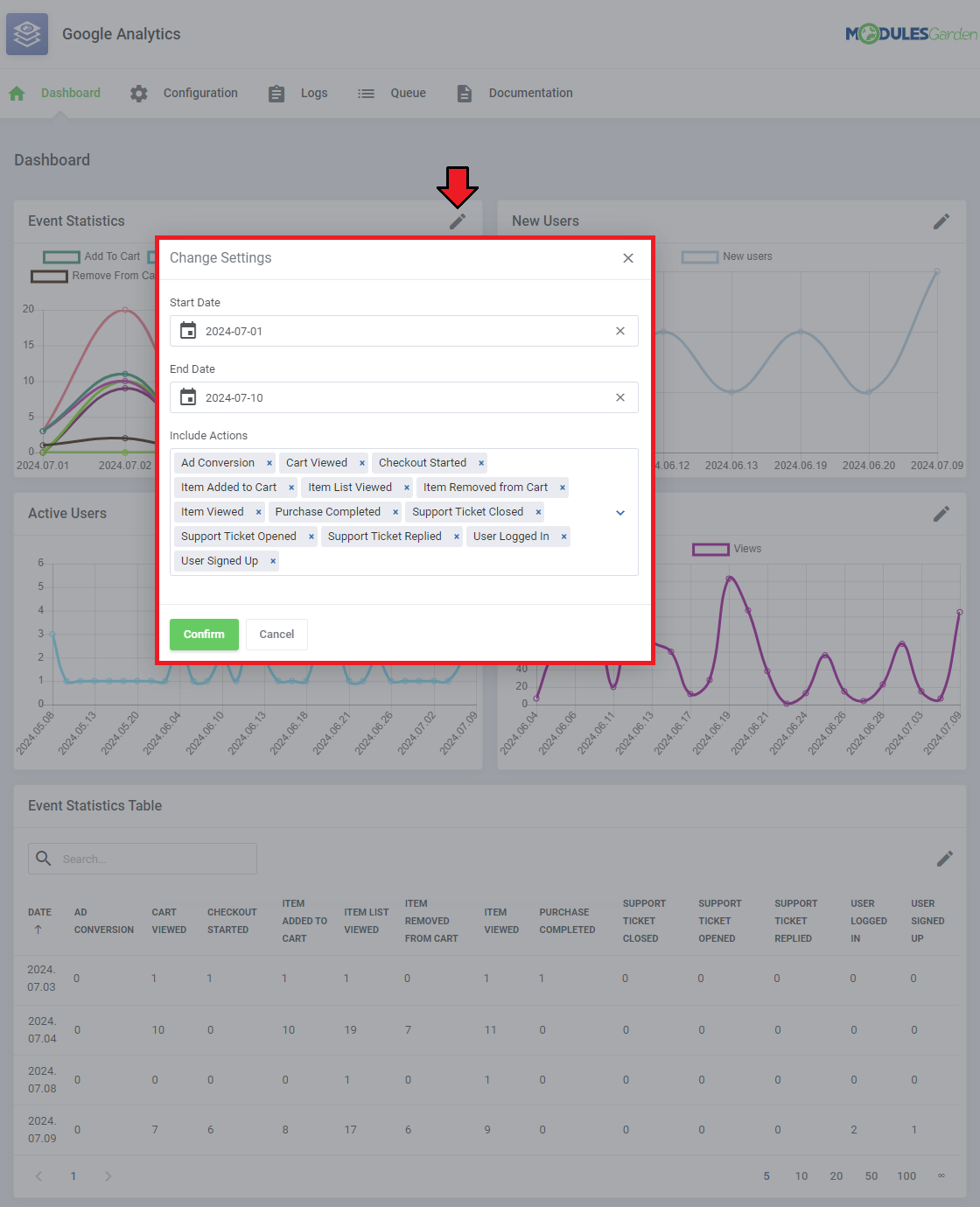
|
| 21. Enter your previously obtained 'Client ID' as well as 'Client Secret' and make sure that 'Callback URL' is correct. Then, press 'Grant access with Google account'. |
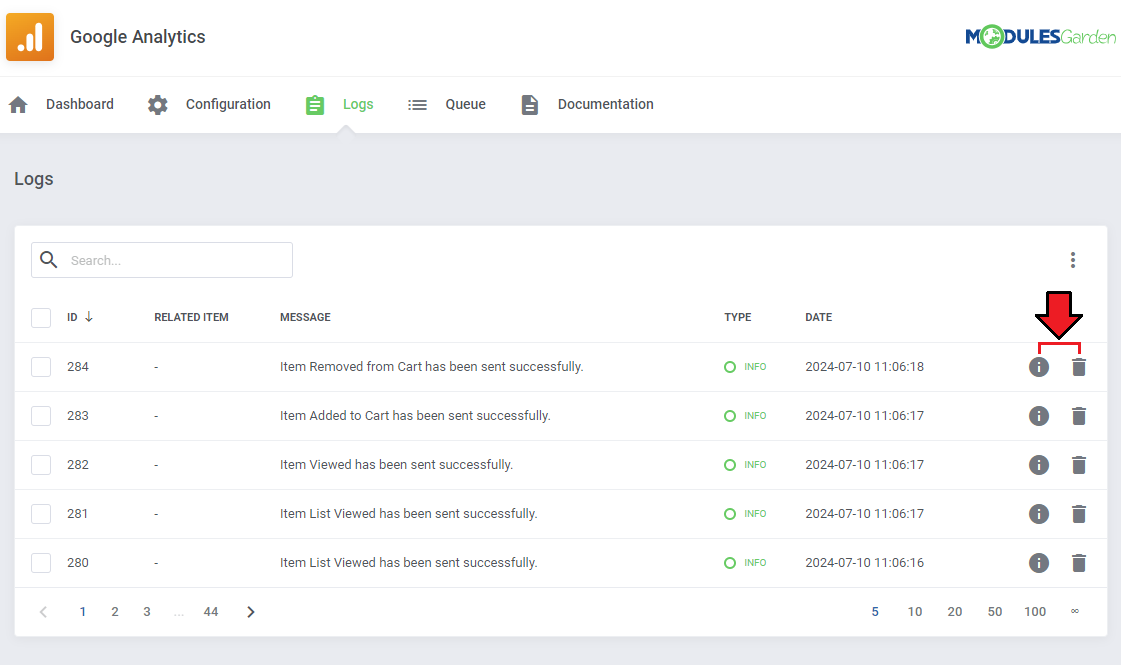
|
| 22. You will be redirected to the page with a permission request if the data you entered is correct. Press the 'Allow access' button. |
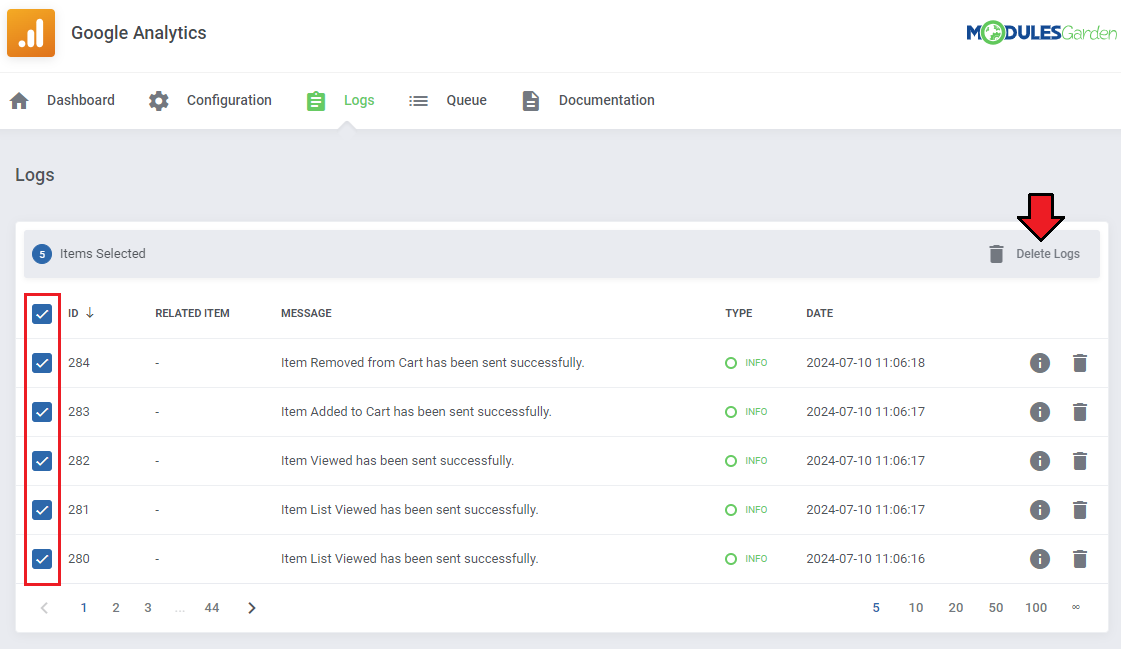
|
| 23. That is it. You will be now redirected to your WHMCS and you will see the following screen. |
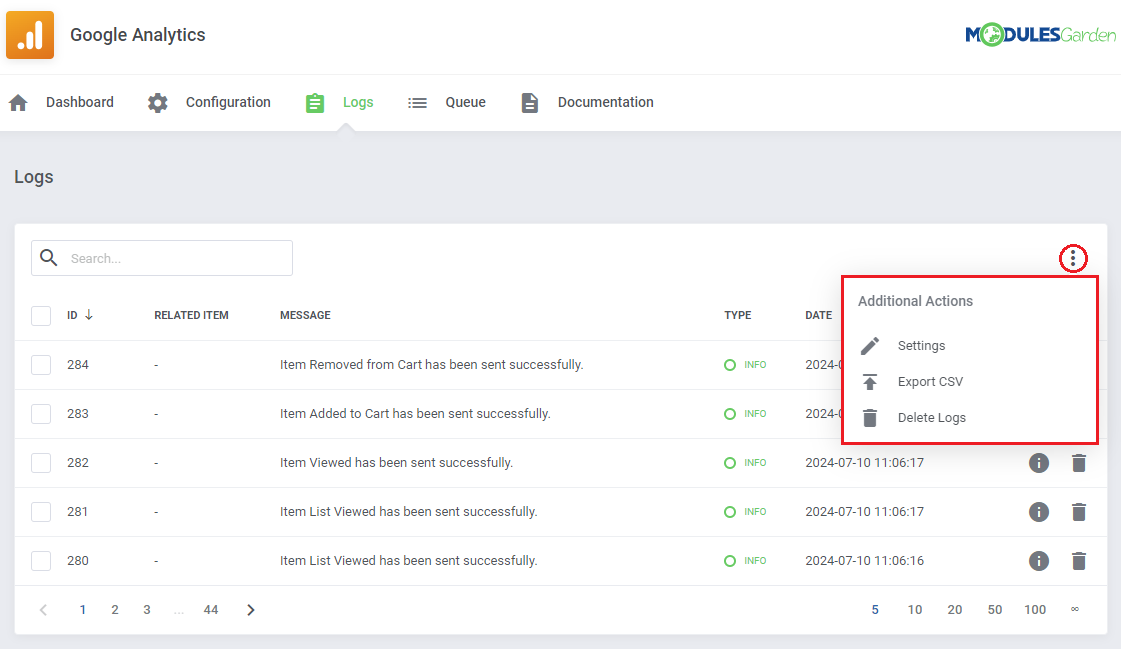
|
| 24. Now, let us move to 'Custom Fields'. Fields with 'GoogleApps Domain' , 'GoogleApps PurchaseOrderID' , 'GoogleApps Alternate Email', 'Mailbox Name' 'GSuiteSubscriptionId' and 'GSuiteDealCode' variables are added automatically. |
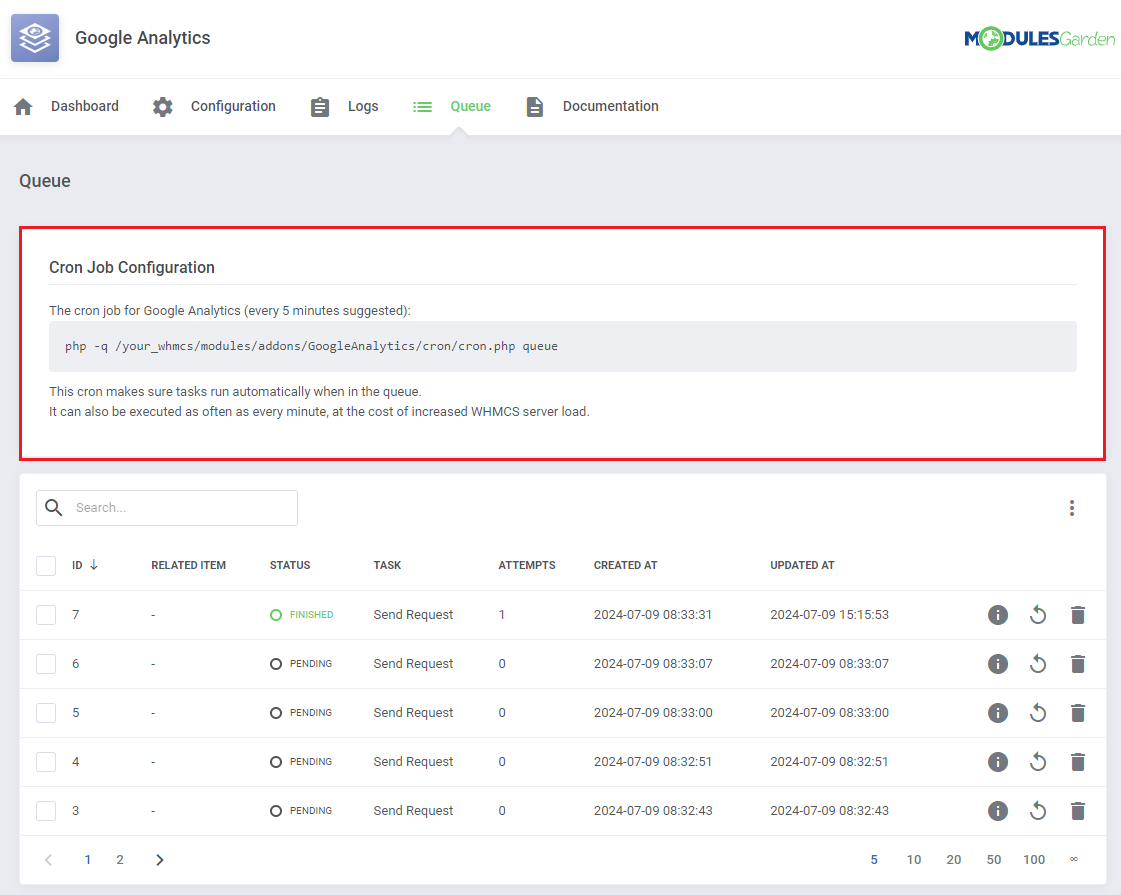
|
Configuration and Management
| Configuration and management of Google Workspace For WHMCS is very intuitive. Read the below sections to see how easy it is. |
Basic Configuration
| Let us begin the process of module ..... |
| File:GAN xxx.png |
Configurable Options
| In order to automatically generate configurable options, simply press the button marked on the screen. |
| File:GAN xx.png |
Admin Area
| Let us check your new product on the product page in admin area. It should look like on the screen below. |
| File:GAN xxx.png |
Client Area
| This is how the module will be displayed in the client area. Google Workspace For WHMCS also allows your customers to quickly access Google account services. |
| File:GAN xx.png |
Update of Existing Customers
| You can link existing customer accounts by filling in the Custom Fields: 'GoogleApps Domain' and 'GoogleApps PurchaseOrderID'. After your customers order a new subscription, they should insert their primary Google account domain name in the 'GoogleApps Domain' field. |
| File:GAN xx.png |
Tips
| 1. The module requires a G Suite Reseller account. To check the current status of your Google Reseller account, navigate to the following site: Google Cloud Partner Portal. There, you can verify the status and request partner authorization if necessary. |
Update Instructions
| An essential guidance through the process of updating the module is offered here. Ensure successful completion of the module update by carefully following each step, thereby preventing data loss or any unforeseen issues. |
Upgrade Guide
| Seeking a solution that offers greater flexibility, customization tailored to your precise needs, and unrestricted availability? There is an option that not only proves to be cost-effective in the long run but also includes prioritized support services, making it a truly valuable investment. Opt for the Open Source version of your Google Workspace For WHMCS module to unlock these benefits. Follow a comprehensive guide covering the transition process, the advantages it brings, and step-by-step instructions on what to do next after the order has been successfully finalized. |
Common Problems
| 1. When you have problems with connection, check whether your SELinux or firewall does not block ports. |